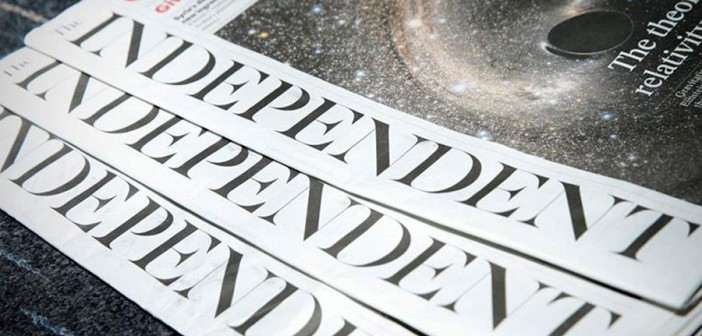How will traditional media brands driven by art and storytelling thrive in this transforming media landscape, asks the chief revenue officer for Media iQ.
Life seems to be pretty interesting right now for some of the biggest media brands in the UK.
Thirty years after it hit the news stand, The Independent announced last month that it would cease to exist in print form from March, publishing as a digital only news product. So too the Beeb, shifting BBC Three to an online only service whilst The Guardianannounced last week that it was about to offer a slew of voluntary redundancies in light of shifting editorial and commercial priorities.
Contrast this with the recent IAB Tech Fronts: this vibrant event allows the weird and wonderful world of ad tech to show its wares to the market. Part of the narrative was, predictably, all about how new data strategies should empower the modern media owner, with real-time analytics and its ability to process the vast digital footprints and signals we leave behind, as a means of informing new content and marketing decisions.
Whilst some of this is perhaps a little self-serving – and sometimes hard to digest – the themes are no less significant or profound to all of us in content, audience, creative or commercial capacities.
The traditional craft of the media owner, namely “if we build it they will come”, has never been more challenged. Established owners of content still continue to prosecute an argument that they are the exclusive inheritors of the “taste-maker” mantra; that consumers trust their editorial instinct, opinion and advice and that there is a natural brand loyalty and obsession with their content. Some of that “art” can still hold fair in the world we live in and long may that continue, even if not the halcyon days of increased circulations, increased page yields or higher viewing figures.
The “science” is perhaps more uncomfortable and represents both an opportunity – and by definition a major threat – to established content norms. At Media IQ we analyse over 10 billion daily events – from lines of ad serving data to world currency changes or weather fluctuations – all helping us make better marketing decisions on behalf of our clients.
This philosophy will increasingly need to be applied to the gatekeepers of content too; they will need to explore what behaviours their audiences show and what their social feeds are revealing about their views and passions.
Additionally, media owners will need to look closer at what consumers like to digest, on what device and how they can create content that can develop, breathe and morph outside of linear environments.
It will be interesting to see which commercial models will thrive and prosper to fund everything, as the traditional revenue streams continue to creak and collapse? We need new forms of creativity in the age of ones and zeros but what type of talent should we embrace for this creativity to flourish? Media brands need to look at what they can learn from the likes of Vice, The Lad Bible and Tip Hero to decide how editorial and commercial teams can be effectively structured, and in turn empower data-driven decision-making and output.
Continued success is always about adaption and reinvention. The brands that we have relied on for so long to inform, entertain and inspire have the opportunity to do exactly that; to embrace this (not so) Brave New World and recalibrate for the future, rather than reacting to the firestorm around them in the algorithmic age.
We all know Einstein’s famous quote about the definition of insanity; I wonder how many media brands truly will be able to recalibrate themselves to protect and grow, and who will be left standing on the dancefloor without a date?
Interesting times indeed…




